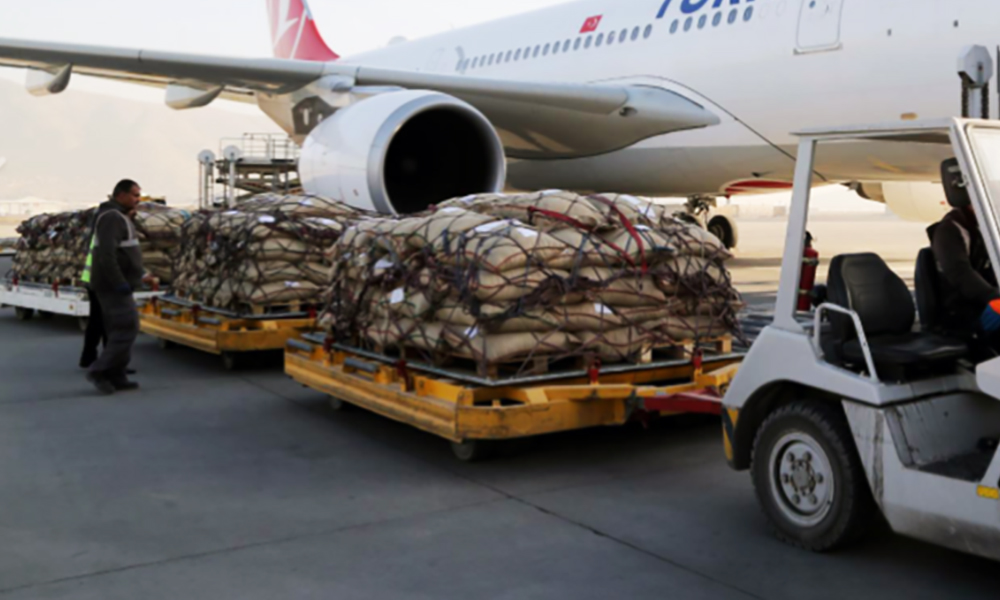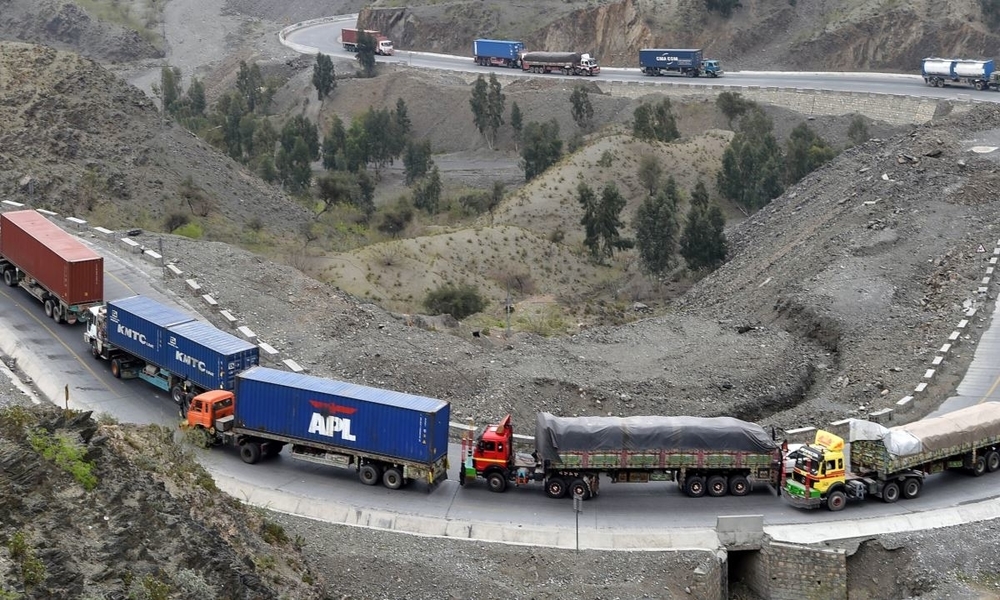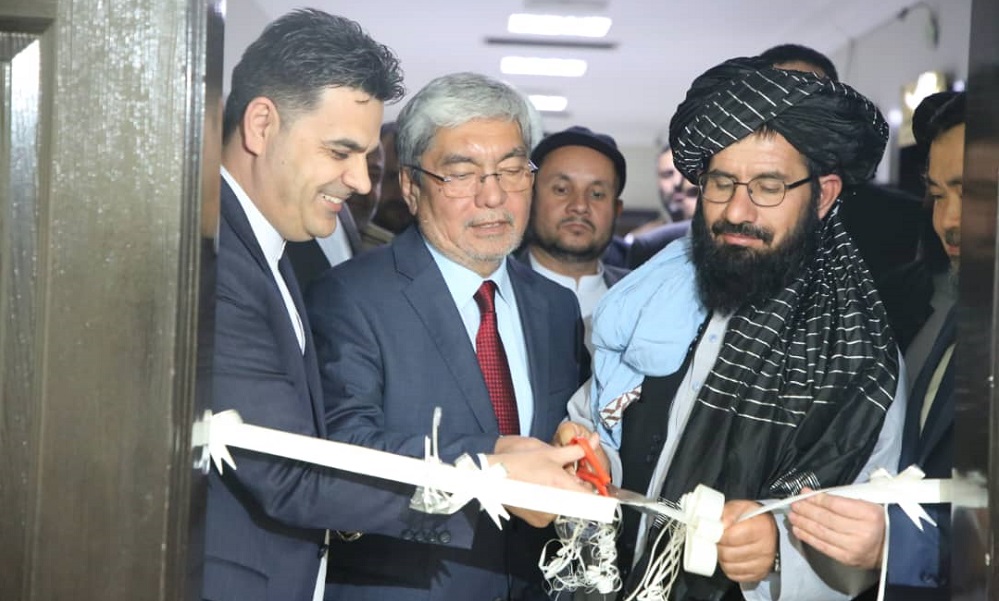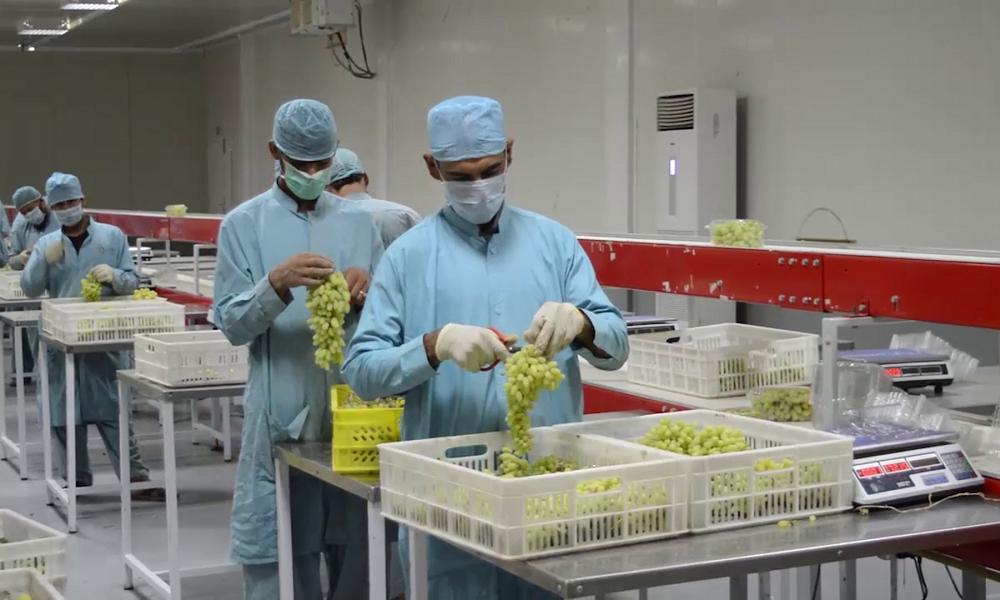Business
History in the making as 18 tons of pine nuts to be shipped overland to Italy

The Ministry of Industry and Trade said Thursday that a local company was preparing to export 18 tons of pine nuts to Italy overland.
According to ministry officials, the private company meets international standards and will dispatch its consignment within the next few days.
Officials also said in the first three months of this year, $19 million worth of pine nuts was exported and that there is a growing demand for the local produce.
It is estimated that Afghanistan harvests around 30,000 tons of pine nuts every year.
However, this Italian-bound consignment will for the first time be shipped overland via Turkey.
“This is a new export by land, which will be exported from Afghanistan to Turkey first, and then to Italy, and now we have the capacity to prepare our products according to the standards of European markets,” said Abdulsalam Akhundzada Jawad, the spokesman of the Ministry of Industry and Trade.
In the past, pine nut distributors have complained about the export process as the produce was first sent to Pakistan and from there sold on to international buyers.
The Chamber of Industries and Mines says that 30,000 tons of pine nut oil is produced annually in the country and is exported to China, Saudi Arabia, United Arab Emirates, India and Pakistan by air and land.
“We consider it important to export Afghan black pine nuts to Italy, and since there is a high export capacity in Afghanistan, the Ministry of Industry and Trade should provide the conditions for export,” said Mohammad Karim Azimi, executive director of the Kabul Chamber of Industries and Mines.
Economic experts say that if the Ministry of Industry and Trade solves the transit problems faced by exporters, Afghanistan will be able to substantially increase sales of dry and fresh fruits to international markets.
“Exporting black pine nuts to European markets is very important. Besides black pine nuts, we have other very important trade and export items in the country, which should be provided for export, which is considered very important for the Afghan economy,” said Taj Mohammad Tala, an economic analyst.
Following the collapse of the former government, air cargo corridors used for exporting fresh produce were stopped. However, business owners are hopeful that newly launched overland trade corridors will now fill the gap and open up even wider markets.
Business
Export volume totals over $140 million in last month of 1402

The National Statistics and Information Authority (NSIA) confirmed Tuesday that in the last month of solar year 1402, (March 2024) Afghanistan’s exports totaled $141.1 million and imports totaled $789.6 million.
This was down from $174 million for exports in the same period in 1401. However, imports increased by $99.2 million in 1402, up from $690.4 million.
Most exports in the last month of 1402 went to Pakistan, India and the United Arab Emirates, while in the last month of 1401 exports went to Pakistan, India and China.
Business
Afghanistan-Kazakhstan chamber of commerce opens in Herat

The Ministry of Interior said the governor of Herat province Islam Jar met with Alim Khan Yasin Gildaye, Ambassador of Kazakhstan to Afghanistan, to discuss various issues around trade.
According to the ministry, the two sides discussed the expansion of trade facilities, increasing the volume of trade exchanges between traders of the two countries, reducing customs tariffs, solving the challenges of traders and issuing visas to them.
The Afghanistan-Kazakhstan Chamber of Commerce has been opened in Herat in order to facilitate and increase trade between the two countries.
Business
Afghanistan reaches self-sufficiency in production of 133 items: MoIC

The Ministry of Industry and Commerce (MoIC) says Afghanistan has reached self-sufficiency in 45 sectors and the production of 133 items, and that the ministry is striving to change Afghanistan from an importing country to an exporting one.
The ministry officials said that for this purpose, supporting domestic products and attracting investment is essential.
The ministry’s spokesman Abdul Salam Jawad Akhundzada emphasized increasing the use of domestic goods and products in government and national projects and added that efforts have also begun to find a market for domestic products inside and outside the country.
“We have reached self-sufficiency in 133 items of production, which is 45 sectors, and also we reached the capacity of semi-self-sufficiency in 95 items of production, which is 27 sectors,” he said.
Meanwhile, the Chamber of Industries and Mines (ACIM) says over the past two and a half years, more attention has been paid to the development of domestic production and it is also expanding.
The chamber officials stressed expanding the culture of using domestic products in government projects.
“I think that the government is one of the biggest consumers in the market if it uses domestic products in all its development projects,” said Abdul Nasir Rashtia, a member of ACIM.
Economic experts also said that if the use of domestic products in government projects increases, Afghanistan will quickly move towards economic independence.
-

 Sport5 days ago
Sport5 days agoACL draw to be broadcast live on ATN channels
-

 Regional5 days ago
Regional5 days agoIRGC chief warns of harsher response if Israel attacks Iran
-

 Sport4 days ago
Sport4 days agoACL fever grows as fixtures finalized
-

 World4 days ago
World4 days agoUS will not take part in any Israeli retaliatory action against Iran
-

 Latest News4 days ago
Latest News4 days agoOver 50 people dead in traffic accidents over Eid
-

 Latest News4 days ago
Latest News4 days agoUS identifies Kabul airport suicide bomber
-

 Business4 days ago
Business4 days agoAfghanistan-Kazakhstan chamber of commerce opens in Herat
-

 Latest News4 days ago
Latest News4 days agoGood rains enable DABS to increase power production in Kabul
























